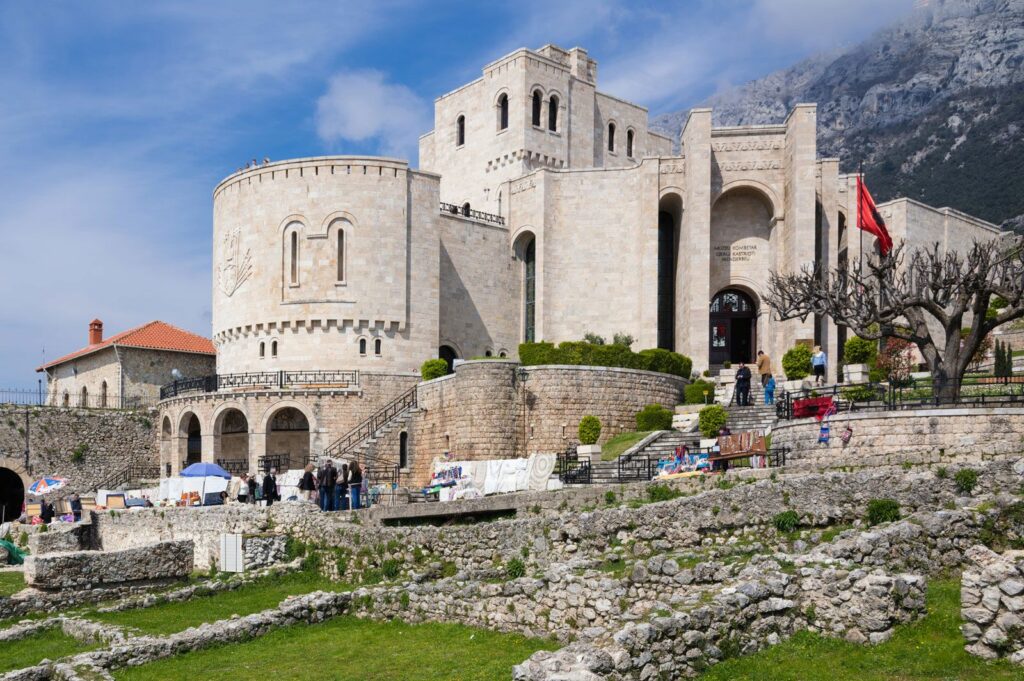mittvsfact.com – Albania, a small yet strategically significant country in the Balkans, has played a unique and evolving role in the region’s complex political and cultural landscape. Its position along the Adriatic Sea and its diverse cultural heritage have influenced its interactions with neighboring countries and its contributions to regional stability and development. Let’s explore the various aspects of Albania’s role in the Balkans.
1. Historical Context: A Nation with a Rich Past
Albania’s history is deeply intertwined with the broader history of the Balkans. From its roots in ancient Illyria to its experiences under Roman, Byzantine, and Ottoman rule, Albania has been a crossroads of civilizations. Its strategic location has made it both a target for conquest and a bridge between East and West. Albania declared its independence from the Ottoman Empire in 1912, marking a significant moment in the region’s history. Throughout the 20th century, Albania’s political landscape was marked by periods of isolation under communist rule, followed by a transition to democracy in the early 1990s.
2. Geopolitical Significance: A Bridge Between East and West
Albania’s geopolitical significance in the Balkans is underscored by its location and its role as a bridge between Eastern and Western Europe. As a NATO member since 2009, Albania contributes to regional security and stability. The country has also been a candidate for European Union membership since 2014, reflecting its commitment to European integration. Albania’s foreign policy emphasizes good relations with its neighbors and active participation in regional organizations like the Southeast European Cooperation Process (SEECP) and the Regional Cooperation Council (RCC).
3. Economic Development: A Growing Contributor to Regional Prosperity
Albania’s economy has shown resilience and growth in recent years, contributing to the broader economic development of the Balkans. The country’s strategic location offers opportunities for trade and investment, particularly in sectors like energy, tourism, and transport. Albania’s efforts to improve infrastructure and foster a business-friendly environment are attracting foreign investment and enhancing its role as a regional economic player. The Trans Adriatic Pipeline (TAP), which crosses Albania, is a key project that strengthens the region’s energy security and connects the Balkans to European energy markets.
4. Cultural Influence: A Diverse and Vibrant Heritage
Albania’s cultural diversity and heritage enrich the Balkans and promote cultural exchange in the region. The country is home to various ethnic groups, including Albanians, Greeks, and Vlachs, each contributing to its rich cultural tapestry. Albania’s cultural influence extends through its literature, music, and cuisine, which reflect a blend of Mediterranean and Balkan traditions. Festivals, cultural events, and historical sites in Albania attract visitors from across the region, fostering greater understanding and appreciation of its unique cultural identity.
5. Diplomatic Engagement: Promoting Peace and Cooperation
Albania plays an active role in promoting peace and cooperation in the Balkans. Its diplomatic efforts focus on resolving regional disputes, strengthening bilateral relations, and supporting initiatives that enhance stability and prosperity. Albania’s commitment to multilateralism is evident in its participation in international organizations such as the United Nations, the Organization for Security and Co-operation in Europe (OSCE), and the Council of Europe. By advocating for dialogue and collaboration, Albania contributes to a more peaceful and integrated Balkan region.
Conclusion
Albania’s role in the Balkans is multifaceted, encompassing historical influence, geopolitical significance, economic development, cultural contributions, and diplomatic engagement. As the region continues to evolve, Albania remains a key player in shaping the future of the Balkans, promoting stability, cooperation, and prosperity. Through its strategic initiatives and commitment to regional integration, Albania is poised to play an increasingly important role in the Balkans and beyond.
